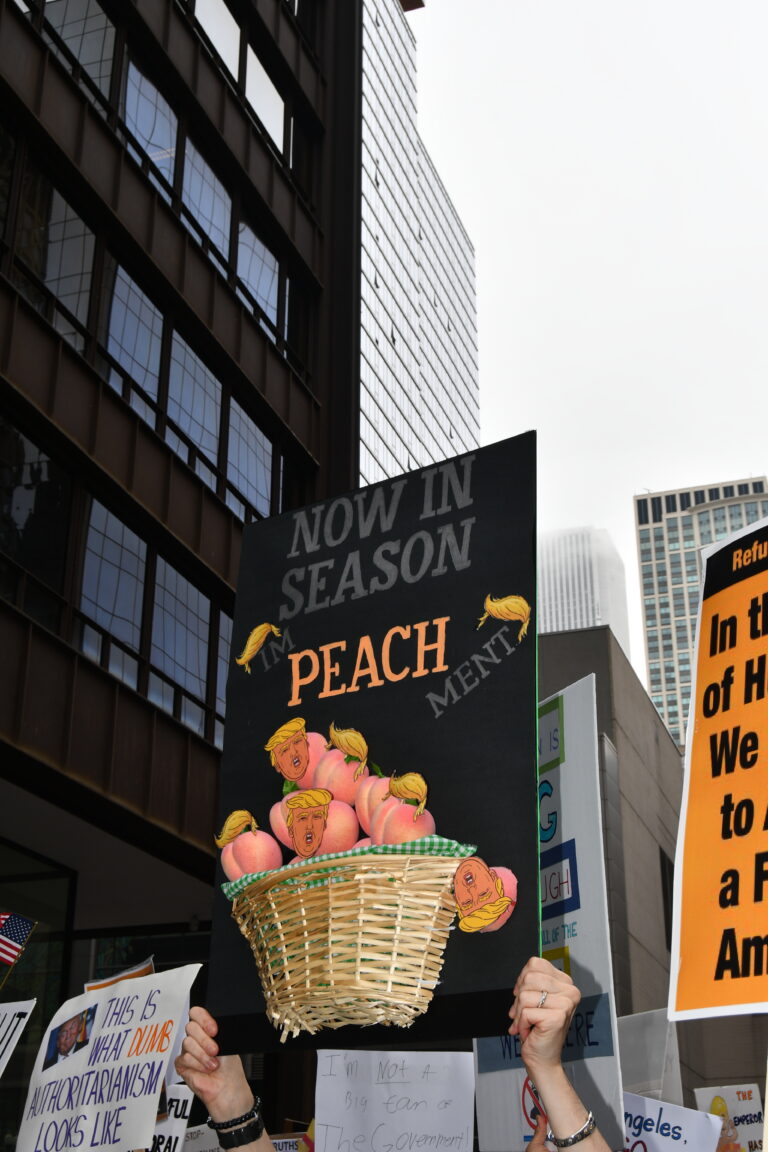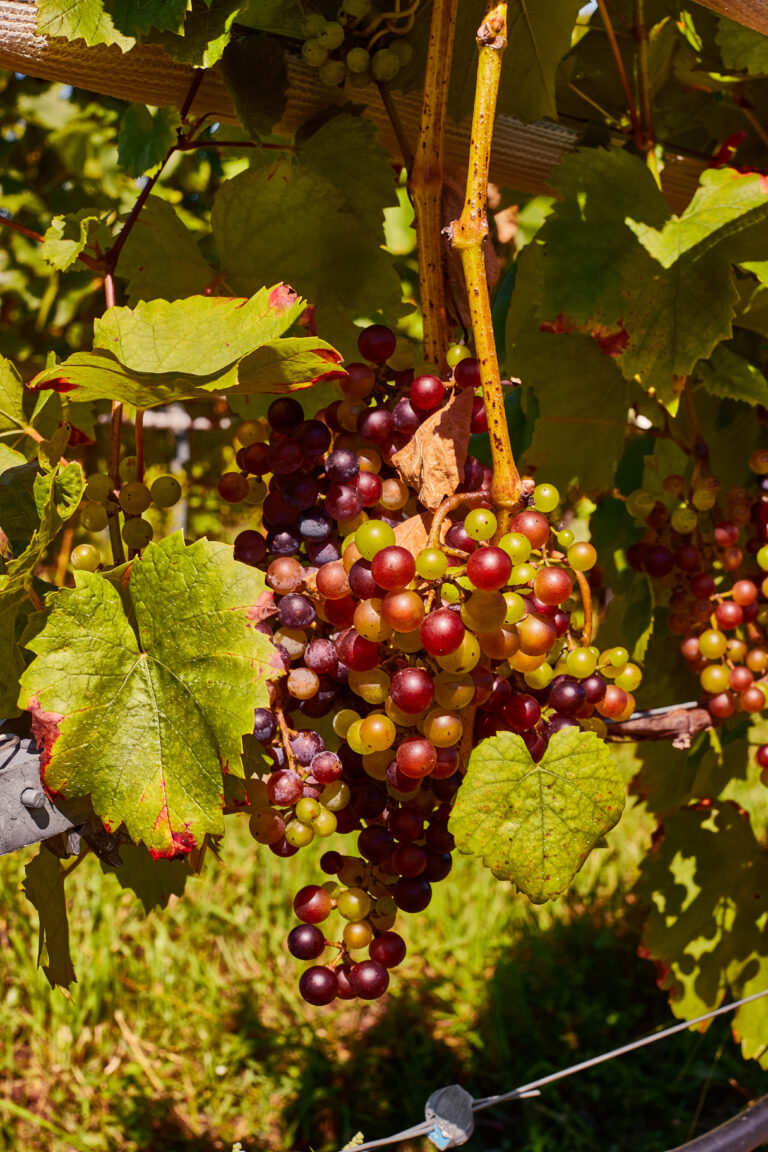
25 Years of Green City Market’s Bountiful Impact on Chicago
In 1998, a trip to the farmers markets of Europe inspired Abby Mandel to bring a similar vision to Chicago. By 1999, that vision became reality with the founding of Green City Market (GCM). What started as a small farmers market with a handful of vendors has grown into a beloved institution that has transformed how Chicagoans connect with their food, farmers, and community.
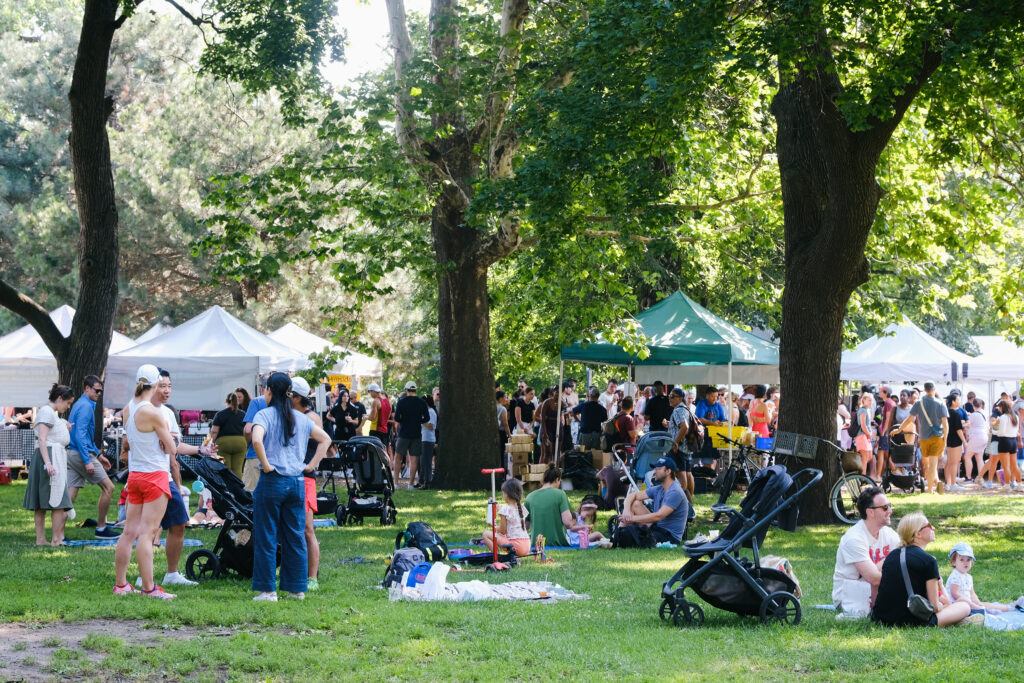
Over the past 25 years, GCM has grown from its modest beginnings into a vibrant hub of activity, drawing customers from across the city and beyond. It’s a place where chefs, farmers, families, and food enthusiasts come together to celebrate the bounty of the Midwest. But GCM is more than just a market—it’s a nonprofit organization that supports sustainable agriculture, expands food access, and fosters a resilient, more equitable food system.
A Force in Chicago: The Founding of Green City Market
“Abby Mandel started this market, and we gathered around her,” recalls Chef Sarah Stegner, a James Beard Award-winning chef and one of the founding members of Green City Market. “And when I mean ‘we’, it was a force in Chicago that gathered around her.”
In those early days, Green City Market was a modest affair, with just nine farmers setting up their stalls in an alleyway behind the Chicago Theater. But even then, the market had a clear purpose: to create a place where consumers could buy directly from farmers who were committed to sustainable practices. Mandel wanted to create a market that would serve as a model for others across the country, demonstrating the viability of local, sustainable food systems.
The market quickly gained a reputation for its high-quality produce and the strong sense of community it fostered. Chefs like Stegner and founding market member and emeritus board member, Rick Bayless, became regulars at the market, sourcing ingredients for their menus and spreading the word about the importance of supporting local farmers as leaders in the Chicago restaurant industry. The market became a gathering place for people who shared a commitment to sustainability, and it wasn’t long before it outgrew its original location.
From Alleyway to Icon: The Growth of Green City Market
Over the past 25 years, Green City Market has grown significantly in size and influence. “We opened 25 years ago with 9 farmers in an alley behind the Chicago Theater and today, we have over 60 vendors joining us this season celebrating and connecting with over half a million customers,” says Mandy Moody, Green City Market’s Executive Director. But the market’s growth has been about more than just numbers; it has been about deepening its impact, expanding its reach, and staying true to its mission of supporting sustainable agriculture.
One way GCM has achieved this is through its innovative programs like GCM for All, which provides SNAP (Supplemental Nutrition Assistance Program) matching to triple the purchasing power of food-insecure families at the market. In 2023 alone, GCM provided over $274,000 in increased purchasing power for 1,102 food-insecure individuals from 116 zip codes, nearly 75% more than the 2022 season. In 2024, the budget for GCM for All has increased to $375,000. This initiative not only makes it easier for low-income families to access fresh, nutritious food, but it also directly supports the farmers by generating additional revenue.
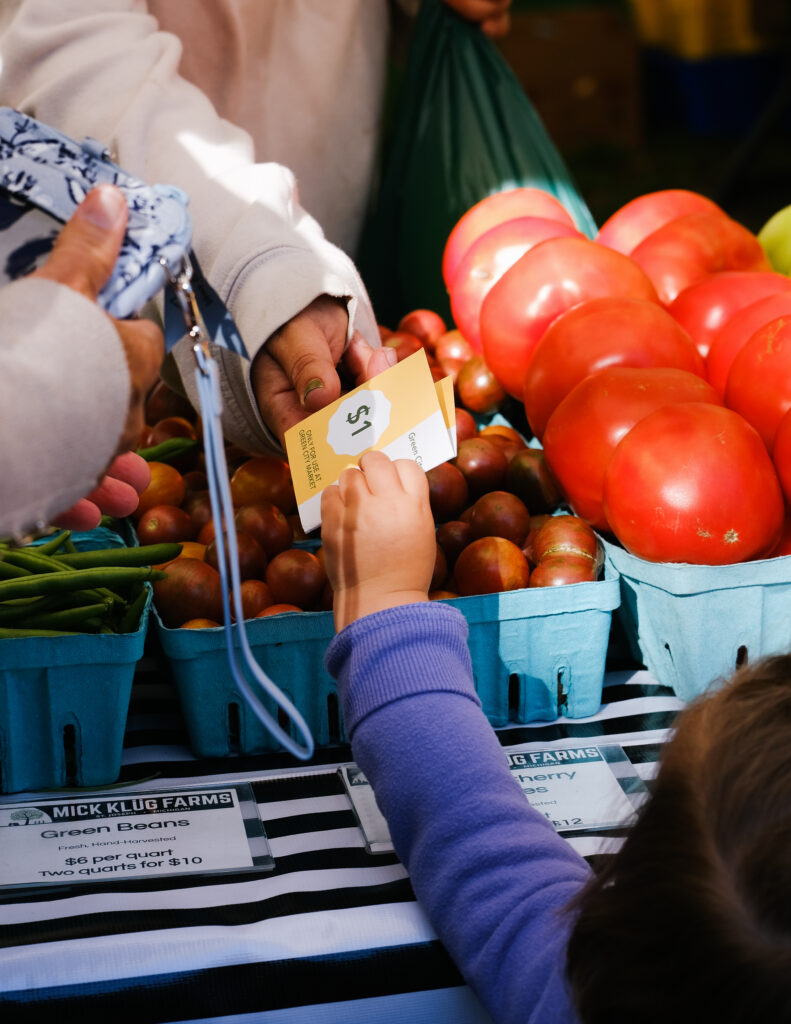
Another key program is Club Sprouts, which engages children with local produce and helps them develop healthy eating habits from a young age. Each time a child participates in Club Sprouts, they receive a $1 voucher to spend directly with a farmer. In 2023, GCM partnered with its vendors to identify $1 products and created signage to help young customers discover where they could use their vouchers. The program saw 4,700 visits in 2023, a testament to the market’s commitment to educating the next generation about the importance of local food.
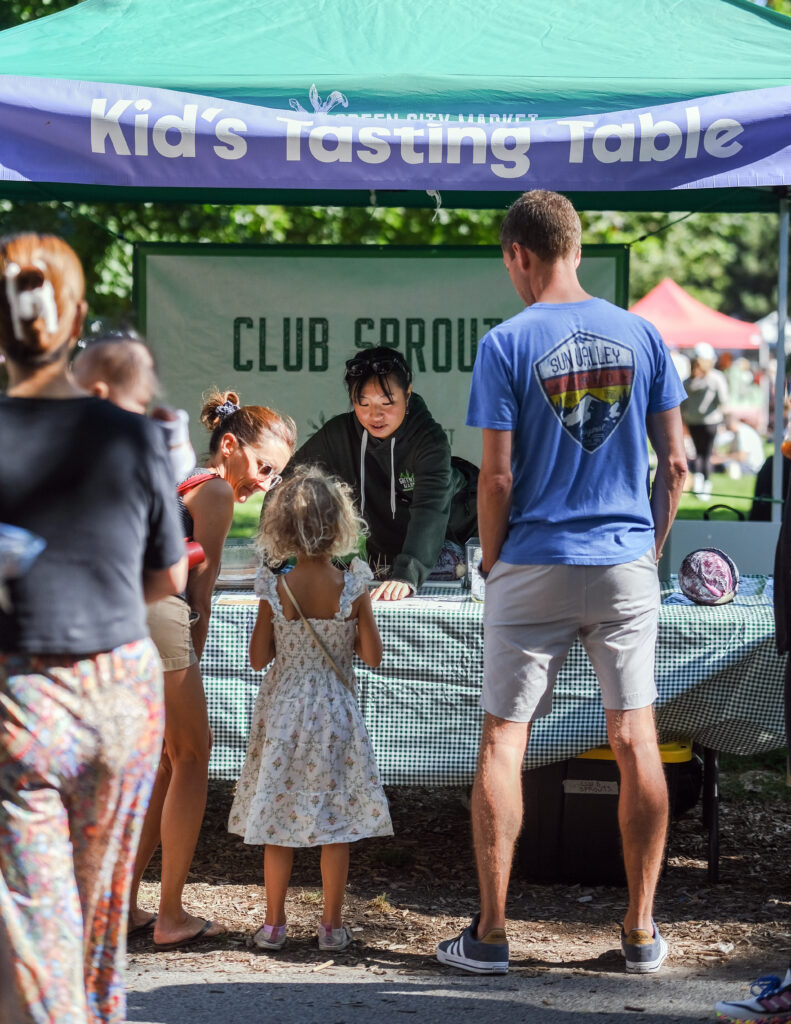
Culinary Connections, another GCM program, not only brings Chicago’s chefs and local farmers together through cooking demonstrations and interactive events, but it also creates valuable wholesale opportunities. This program facilitates direct relationships between chefs and farmers, enabling restaurants to source the freshest, seasonal ingredients while supporting local agriculture. By connecting chefs with these wholesale opportunities, Culinary Connections helps strengthen the local food economy and ensures that more of Chicago’s restaurants feature sustainably grown produce.
Supporting Chicago, One Neighborhood at a Time
Green City Market’s impact extends far beyond the busy market days in Lincoln Park and West Loop. The market has become a vital part of Chicago’s food ecosystem, nourishing not just individuals, but entire communities. In 2023, GCM donated over 16,700 pounds of food to local pantries and mutual aid groups.
These initiatives not only provide much-needed support to Chicago’s food-insecure communities, but they also help to build a more resilient local food system. By ensuring that everyone, regardless of income, has access to fresh, healthy food, GCM is playing a key role in creating a more equitable food landscape in Chicago.
The Champions of Green City Market: Farmers at the Heart
At the heart of Green City Market are the farmers—who work to bring fresh, sustainably grown food to the people of Chicago.
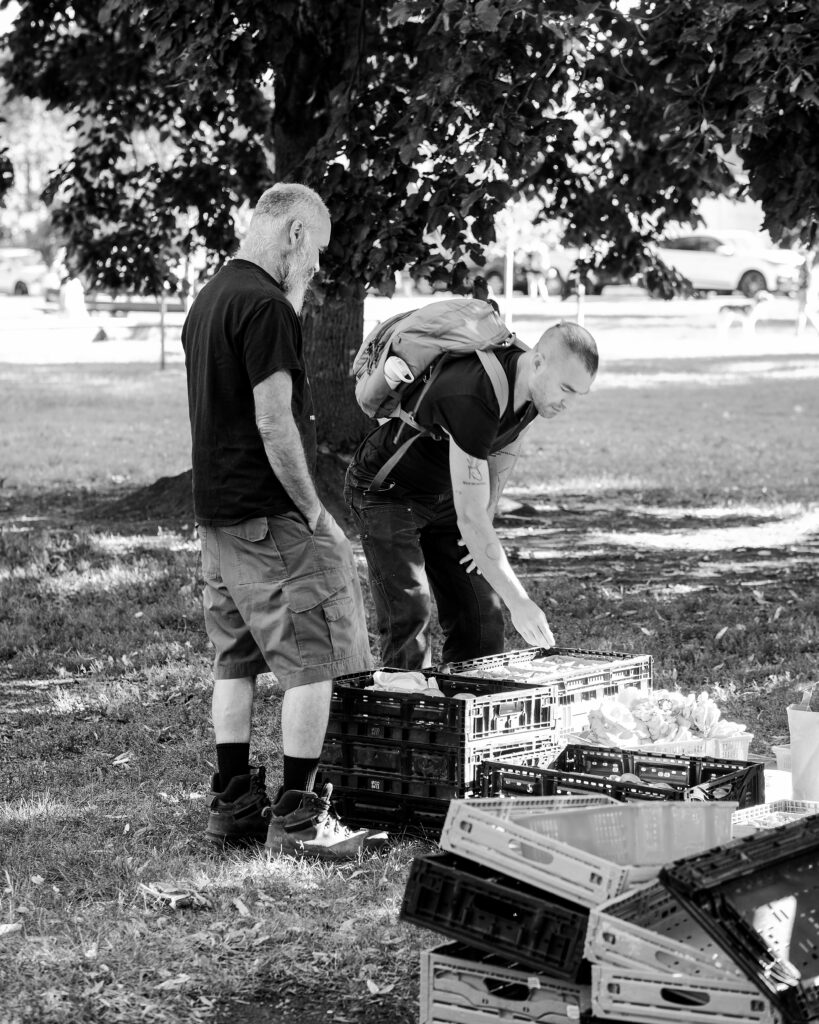
For these farmers, GCM is more than just a marketplace—it’s a community, a lifeline, and a source of inspiration.
“The farmers are our champions,” says Stegner. “It matters what you do. It matters that you acknowledge them. It matters that you talk to them. It matters that you know who your farmer is who is growing your food.”
This deep connection between farmers and consumers is one of the things that makes Green City Market so special. At GCM, shoppers aren’t just buying food—they’re building relationships with the people who grow it. They’re learning about the challenges and rewards of sustainable farming, and they’re gaining a deeper understanding of where their food comes from.
Looking Forward: Sustaining the Legacy
As Green City Market enters its next quarter-century, the focus remains on sustainability, community, and innovation. The organization is committed to continuing its work of expanding food access, supporting farmers, and educating the public about the importance of local food systems.
Looking ahead, GCM plans to continue expanding its reach and deepening its impact. This includes plans to grow its educational programs, increase its support for food-insecure communities, and further its efforts to promote sustainable agriculture. The market is also committed to continuing its tradition of innovation, exploring new ways to connect farmers and consumers, and adapting to the changing needs of the community. As we look to the future, it’s clear that Green City Market will continue to play a vital role in shaping the future of food in Chicago and beyond.
GCM’s outdoor season will continue through November 23rd for both the West Loop and Lincoln Park locations before moving indoors for the winter.
Shopping at markets through the fall and winter seasons secures critical cash flow, supporting farmers through the early growing season of 2025.

